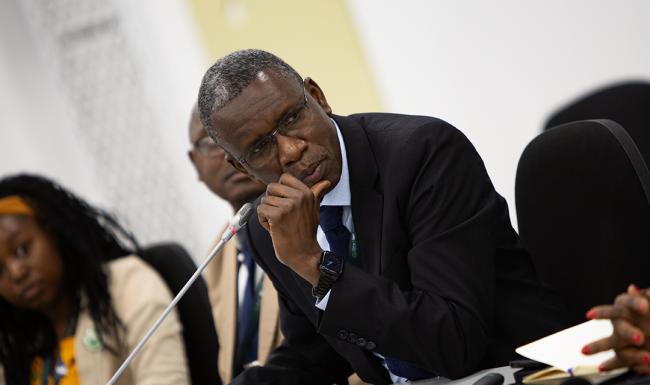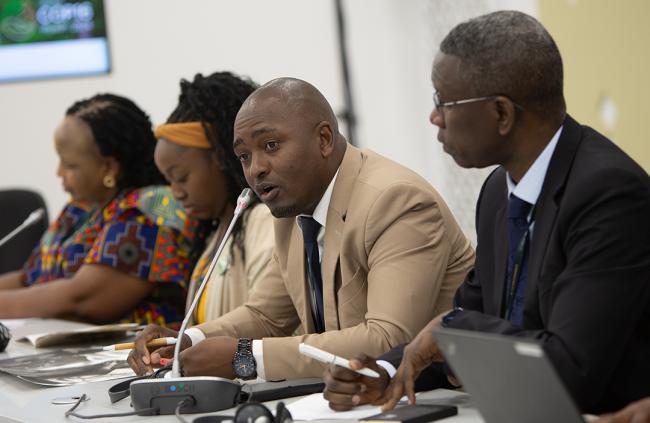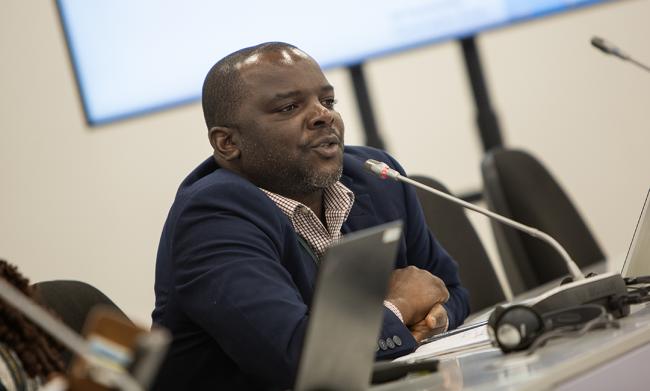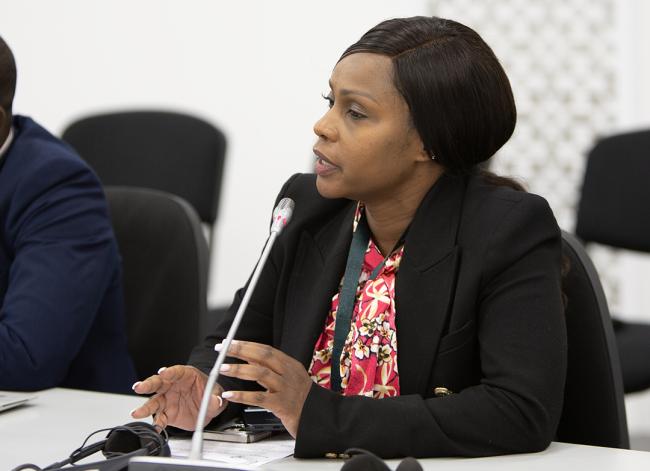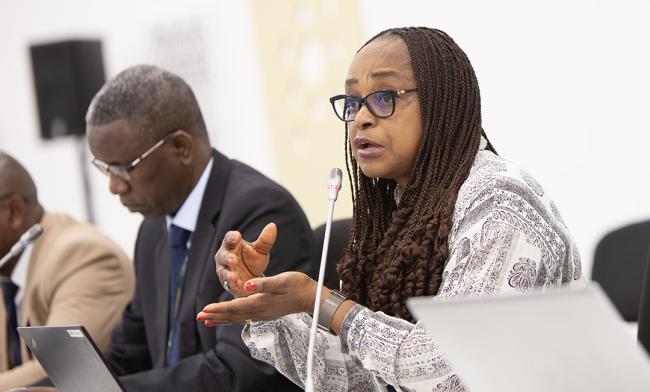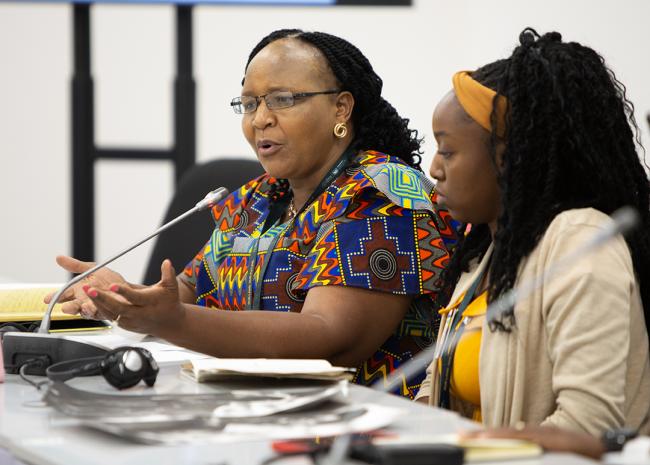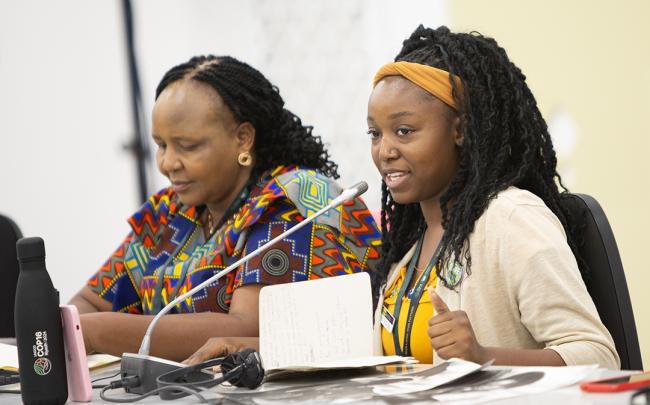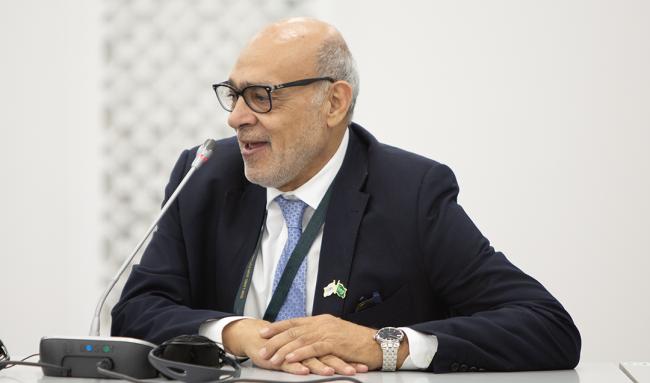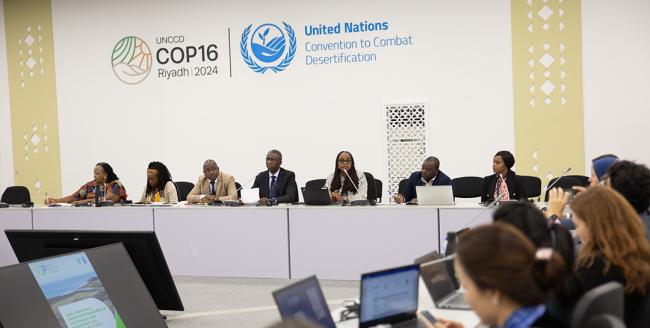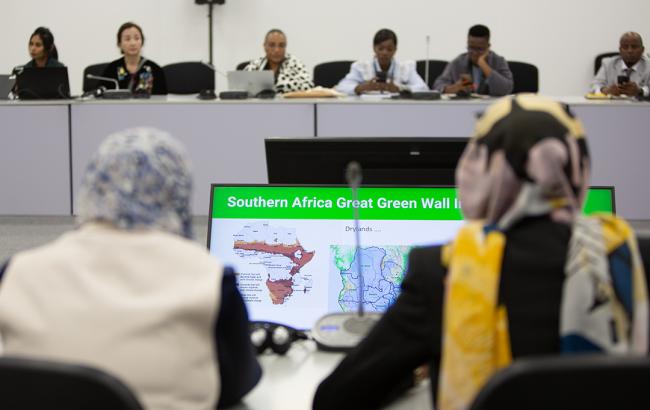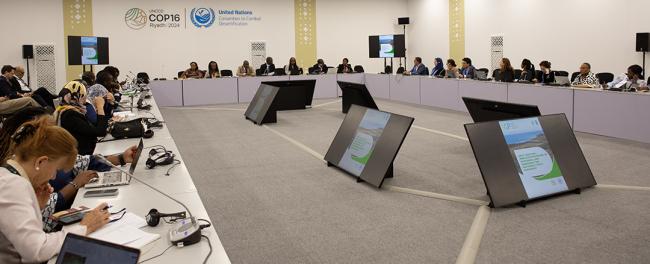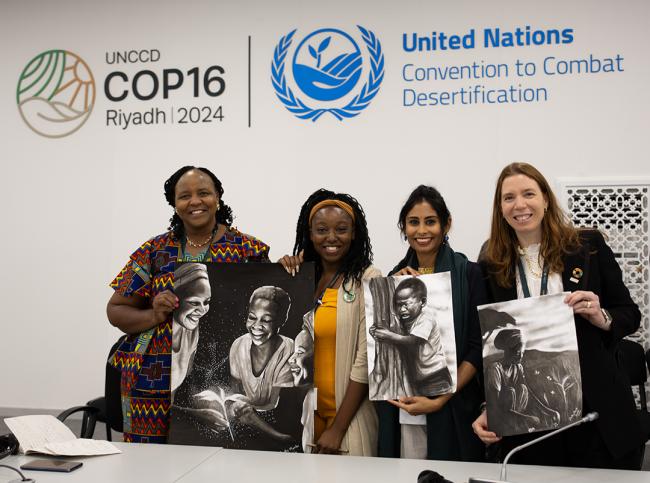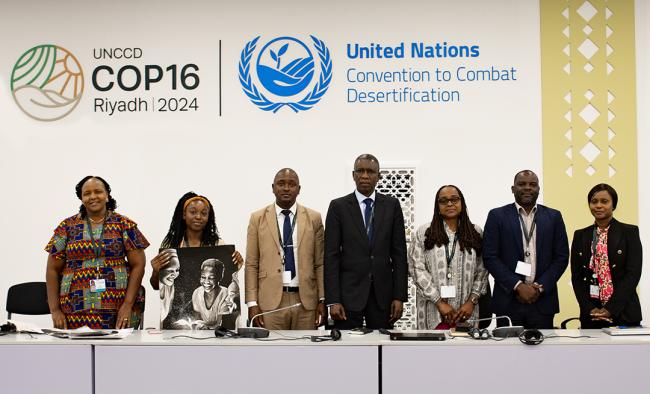About
The Great Green Wall Initiative in the Southern African Development Community (SADC) teems with examples of how small grants can incubate big change, ranging from stories of beekeeping, growing drought-resistant melons in arid areas to using art and painting to build capacity for sustainable tree planting.
Landscape restoration in Southern Africa has enabled new income-generating activities, such as tree nurseries, beekeeping, and aquaculture, in local communities. This event highlighted successes in gaining co-financing to scale up projects initiated with funds accessed through the Global Environment Facility (GEF) Small Grants Programme (SGP), implemented by the UN Development Programme (UNDP).
Samba Thiam, Senior Policy Development Advisor, UN Office for South-South Cooperation, moderated the session, and Oldman Oduetse Koboto, African Union Commission (AUC), delivered opening remarks. Koboto noted that activities under the Great Green Wall Initiative (GGWI) have provided proof of concept, increased incomes, and enabled governments to collaborate effectively with local stakeholders.
Shepherd Muchuru, Southern African Development Community (SADC), provided an overview of the GGWI. He noted that drought is the region’s most common, costly, and deadly natural disaster, with one-third of SADC’s 345 million population living in drought-prone areas and 15% facing acute food insecurity. He described six areas targeted for attracting investment under the GGWI, namely: water for all; renewable energy; productive and resilient ecosystems; climate-resilient green infrastructure; strengthening agricultural productivity and resilient food systems; and transformative economic and business development.
Cathrine Mutambirwa, Global Mechanism of the UN Convention to Combat Desertification (UNCCD), highlighted partnerships for co-financing. She noted the possibility of accessing GEF and Green Climate Funds (GCF) through accredited agencies, such as the UN Environment Programme (UNEP) and the UN Development Programme (UNDP), as well as through the private sector.
Marie-Laure Mpeck, GEF SGP, reflected on programme impacts, explaining that the SGP has provided funds of USD 150,000 in eight of the 16 SADC countries. She highlighted the provision of funds to women-led organizations and civil society, based on work with UNCCD focal points in each country to identify priority areas.
Tsitsi Wutawunashe, SGP National Coordinator, Zimbabwe, noted that, with the support of other financiers, such as a local bank, initial project activities have been scaled up to a landscape-based approach. She highlighted successes, for example: protection of the Shurugwi wetlands has achieved groundwater recharge and enabled fish farming activities; training in beekeeping, aquaculture, sustainable forest management (SFM), and crafts in the Honde Valley has promoted tree propagation, aquaculture, and honey exports; and the SCOPE Zimbabwe programme focusing on environmental education in schools is transforming barren landscapes into productive zones through activities in seed saving, crop diversification. and rainwater harvesting. A grant of USD 50,000 to the Kuumba Community Foundation, she added, has helped promote drought-resistant crops, such as amaranth and the Kalahari melon, which are suitable for arid regions.
Dorothy Mumbi, New Zambian Innovations, discussed her experience as a SGP grantee working with art in local communities: for example, using painting and drawing to provide training and capacity building for women, children, and farmers on how to use sustainable agriculture techniques for tree planting.
In a question-and-answer session, Emad Adly, SGP Egypt National Coordinator, discussed the power of local actions to create global impact, adding that co-financing is critical. A participant from Namibia offered the insight that small grants are not sufficient to create a whole value chain, but argued that a value chain from four or five small grants in the same community can be created. Another participant cited the example of a climate-smart agriculture project that gave birth to a peanut grinding mill, which in turn led to a different grantee purchasing a peanut butter processing plant.
Questions with audience members focused on: how to mobilize private sector funding; how to bridge the capacity gap for civil society organizations in countries; and how to learn from countries in the Sahel which are starting to attract funding for carbon markets.
Both Mutambirwa and Muchuru acknowledged a gap in private sector funding. Mutambirwa, for her part, voiced optimism based on keen interest shown during the Business4Land Forum held during this COP. She said the UNCCD will work with partners to leverage this interest.
Commenting on the question about a capacity gap among civil society organizations, Mpeck said that SGP national coordinators provide support on preparing grant proposals and technical and financial reporting for grantees seeking support from external funders. She added that community groups can also hire external technical experts to provide support and training services
Wutawunashe, responding to the question about how to mobilize more private sector funding, described a recent partnership with Zimbabwe’s FBC Bank to offer enterprise development training, and technical support for business management to some grantees. This year, she explained, a workshop was held with the GEF to pilot this project where the above-mentioned grantees on beekeeping and melons were involved.
Summing up the main takeaways from the session, Thiam singled out, as a priority, the need to engage the private sector. Furthermore, he urged national governments to step up actions to de-risk activities in order to ensure the private sector takes the lead. Finally, he cited the value of partnerships as well as the potential offered by new work streams, such as those related to carbon markets.
Organizer: GEF Small Grants Programme, UNDP
Contact: rissa.edoo@undp.org
Website: https://sgp.undp.org
To receive free coverage of global environmental events delivered to your inbox, subscribe to the ENB Update newsletter.
All ENB photos are free to use with attribution. For UNCCD COP 15 Side Events, please use: Photo by IISD/ENB | Angeles Estrada Vigil

